

Russia's President Vladimir Putin says his country will continue its yearlong "special military operation" in Ukraine, and he accused the US-led NATO alliance of fanning the flames.
Russia-Ukraine conflict would have cost world economy $1.6 trillion in 2022, according to a study published by the German Economic Institute.
MOSCOW -- Russia has transferred the bodies of 6,060 fallen soldiers to Ukraine, Russian Presidential Aide Vladimir Medinsky said Monday.
Russia agreed to return the bodies of 6,000 fallen Ukrainian soldiers after Russia-Ukraine talks in Istanbul on June 2.
According to Medinsky, Russia has received the bodies of 78 Russian soldiers from the Ukrainian side.
"Prisoner exchanges continue. Arrangements have also been established regarding the exchange of severely wounded servicemen from the frontline," Medinsky, also Russia's chief negotiator at the talks with the Ukrainian side, wrote on Telegram.
MOSCOW - Moscow's air defense systems were actively engaged in repelling a wave of Ukrainian drone attacks in the early hours of Friday, Moscow Mayor Sergei Sobyanin wrote on his Telegram channel.
Drone attacks occurred in multiple locations surrounding Moscow, including the Kolomna and Ramensky urban districts, southeast of the capital, where air defense forces successfully intercepted the drones, Sobyanin wrote.
Preliminary reports indicate no significant damage or casualties from falling debris. Emergency response teams were immediately dispatched to the affected sites, he wrote.
In the Podolsk urban district, two additional drones were shot down by air defense systems as they approached Moscow. Russian forces also neutralized a drone in the Troitsky Administrative District and another in the Shchyolkovo urban district of Moscow, according to the mayor.
As a precautionary measure, temporary restrictions on aircraft arrivals and departures were imposed at Moscow's Vnukovo, Domodedovo and Zhukovsky airports.
KYIV/MOSCOW - The Ukrainian army carried out its "largest strike" on Russian military targets, 200 to 1,100 kilometers deep into the Russian territory, early Tuesday morning, General Staff of the Armed Forces of Ukraine confirmed on Facebook.
Targets of the strike included oil storage facilities, military plants and other locations in such areas as Bryansk, Saratov, Tula regions and the Republic of Tatarstan, according to a statement.
Russian Defense Ministry confirmed the attack on Tuesday, accusing Ukraine of using US- and British-made long-range missiles and drones.
The Ukranian actions "supported by Western handlers will trigger retaliation", the ministry said in a statement.
Dozens of drones were shot down overnight across multiple regions in Russia, with damage reported at industrial plants and residential buildings, TASS news agency reported, citing local officials.
No casualties were recorded, it added.
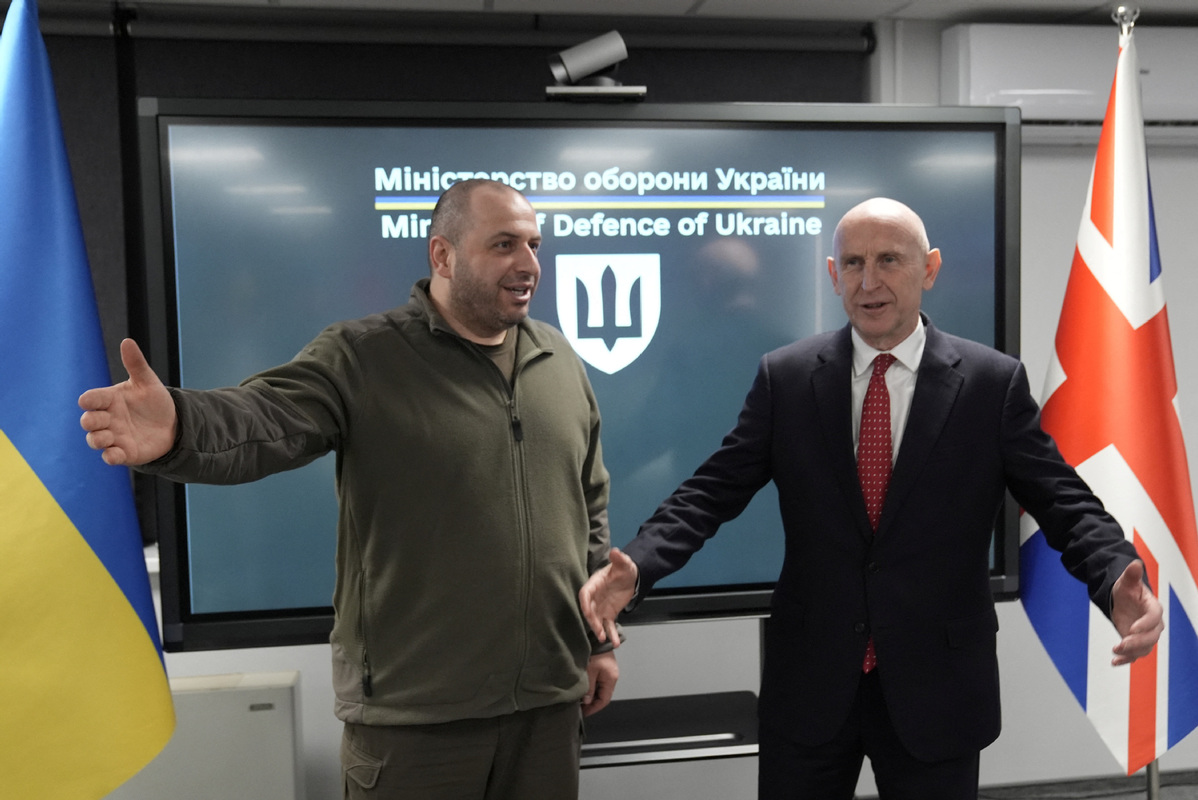
KYIV -- Britain is intensifying its military support to Ukraine with a new aid package that includes naval drones, air defense systems and artillery, British Defense Secretary John Healey said Wednesday.
Training for Ukrainian soldiers under Operation Interflex, a Britain-led multinational military operation, will continue in 2025 regardless of the developments in Ukraine's peace process and a possible ceasefire, Healey said in an interview with the Ukrainian state Ukrinform news agency.
However, he said it is too early to publicly discuss the possibility of British support for deploying an international peacekeeping force in Ukraine.
Healey arrived in Kyiv earlier in the day, local media reported.
On the same day, Ukrainian Defense Minister Rustem Umerov wrote on Facebook that he had talked with Healey about strengthening Ukraine's air defense, ensuring an uninterrupted supply of artillery ammunition, and exploring joint defense projects.
A key topic was the co-production of air defense systems, he said, adding that the discussions also covered the use of Storm Shadow missiles, and equipping and training new brigades of the Ukrainian army.
China's envoy to the United Nations on Thursday called for de-escalating the conflict in Ukraine and a halt to arms shipments there.
"Many (Security) Council members, including China, have expressed concerns about the increased lethality of the weapons and the rising risk of diversion and proliferation," Geng Shuang, China's deputy permanent representative to the UN, said at a Security Council meeting on the Ukraine crisis.
"The continued supply of weapons to the battlefield will only exacerbate the cruelty, danger and unpredictability of the war, hasten the spread of the spillover effects, and further dim the hopes for the cessation of hostilities," he said.
In a recent briefing, Adedeji Ebo, director and deputy to the High Representative for Disarmament Affairs, highlighted ongoing arms transfers to both Ukraine and Russia. He noted that Ukraine continues to receive heavy conventional weapons, including armored combat vehicles, combat aircraft, large-caliber artillery and missile systems.
"Weapons may help win wars but they cannot win lasting peace," Geng said.
China calls on the parties of the conflict to demonstrate their political will in earnest, start peace talks and stop the fighting as quickly as possible, he said.
Geng restated and emphasized that China has not provided arms to any party involved in the conflict in Ukraine and has consistently maintained strict control over dual-use items.
"Chinese enterprises carry out normal economic and trade cooperation with countries around the world, including Russia and Ukraine, in accordance with WTO (World Trade Organization) rules and market principles, which is reasonable, legitimate and beyond reproach," he said.
"We oppose the US use of the Ukraine issue to smear China's image and exert pressure on China, and its wanton imposition of unilateral sanctions and illegal long-arm jurisdiction on Chinese entities and individuals.
"We will take all necessary measures to safeguard the legitimate and lawful rights and interests of Chinese enterprises and citizens," Geng said.
He said that the US has previously discredited and vilified China, blaming it on the Ukraine issue.
Trust deficit
"The Ukraine crisis is essentially an eruption of the built-up security tensions in Europe, a result of the long-term accumulation and worsening of the security and trust deficit in Europe," said Geng.
He said that the situation was exacerbated by the United States, which has continually heightened tensions, expanded the trust deficit, and fostered division and confrontation across the region.
On the battlefield, Russia's defense ministry on Thursday claimed the capture of another village in eastern Ukraine as troops advance rapidly in the Donetsk region. Ukrainian air defenses destroyed 31 out of 48 drones launched by Russia over various regions of Ukraine during an overnight strike, Kyiv's air force said on Friday.
Agencies contributed to this story.
mingmeili@chinadailyusa.com
MOSCOW -- Russia thwarted an attempted incursion by a Ukrainian sabotage and reconnaissance group in the Klimovsky district of the Bryansk region Wednesday, regional governor Alexander Bogomaz said on his Telegram channel.
Bogomaz confirmed that the breach was successfully prevented by the forces of the country's Federal Security Service and units of the Russian armed forces. The Ukrainian group sustained fire damage during the encounter, he said.
"The situation at the clash site has now been stabilized and is under the control of the regional operational headquarters," said Bogomaz.
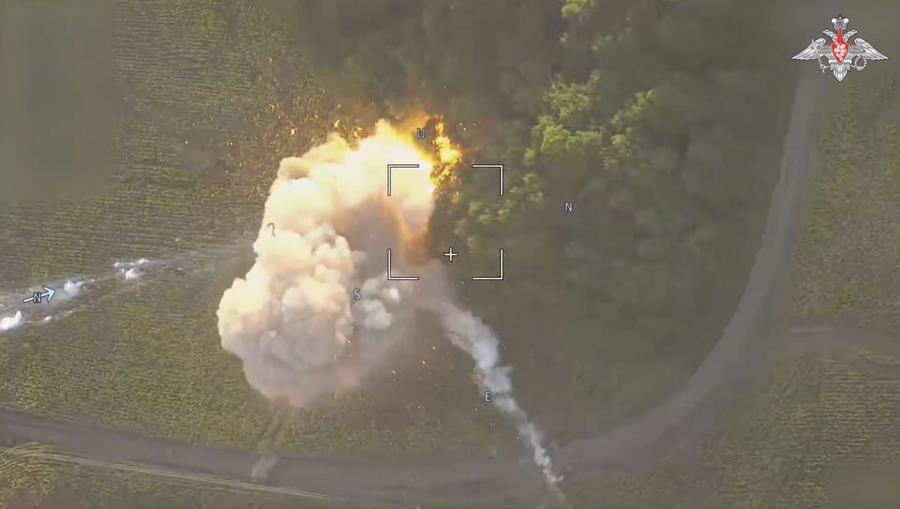
MOSCOW -- Ukrainian troops launched their first strike using Western-made missiles on civilian targets in Russia's Kursk region Friday, said Russian Foreign Ministry Spokesperson Maria Zakharova.
"Notably, this is the first time that civilian objects in the Kursk Region have been struck by Western-made rockets, likely American HIMARS," Zakharova said.
She said a bridge over the Seym River in the Glushkovsky District of Kursk was destroyed and "volunteers helping civilians were killed in the strike."
She said all those responsible for such acts would face severe punishment from Russia.
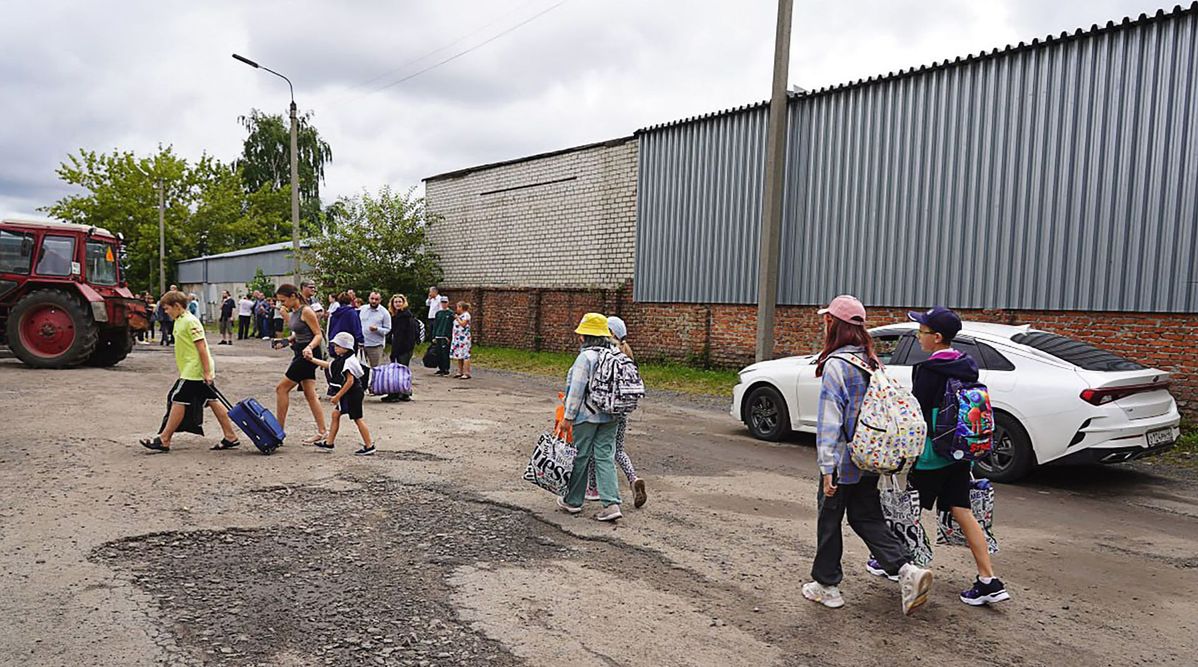
MOSCOW -- A mandatory evacuation has been ordered for all residents of the Glushkovsky district in Russia's Kursk region, Acting Governor Alexei Smirnov announced on his official Telegram channel Wednesday.
"The regional operational headquarters has decided to mandate the evacuation of the entire Glushkovsky district," Smirnov said.
The Glushkovsky district, which borders Ukraine, comprises two towns and 11 villages.
This comes after an earlier announcement of a mandatory evacuation in the settlement of Glushkovo within the district.
Law enforcement agencies, local authorities, and volunteers from the Kursk Patriot Center will coordinate the evacuation process.
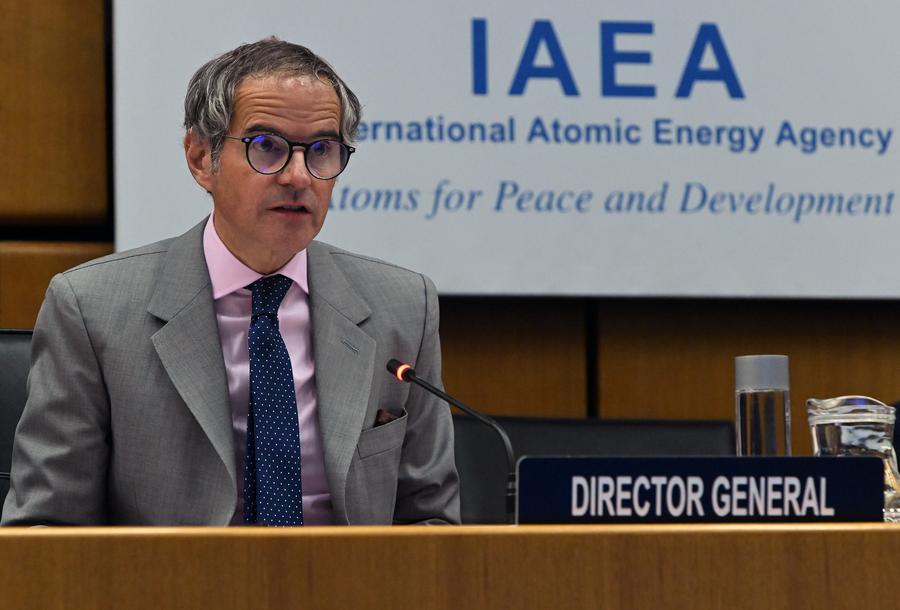
VIENNA -- Head of the International Atomic Energy Agency (IAEA) on Friday night urged Ukraine and Russia to "exercise maximum restraint" to ensure nuclear safety in Russia's Kursk region, home to the Kursk Nuclear Power Plant (NPP).
IAEA Director-General Rafael Grossi said in a statement that the agency has been "monitoring the situation on the reported military activities" near the Kursk NPP.
The IAEA chief urged all parties to abide by the seven indispensable pillars for ensuring nuclear safety and security during an armed conflict, adding that he is in contact with relevant Ukrainian and Russian authorities.
Also on Friday, Russia notified the IAEA that suspected fragments of intercepted rockets were discovered near the Kursk NPP following a Ukrainian attack in the Kursk region, Russia's permanent mission to international organizations in Vienna said on social media platform X.
"So far, there's been no direct shelling of the town of Kurchatov, NPP or energy infrastructure facilities. However, the situation remains tense," the mission said.

Russia and Ukraine conducted a major exchange of prisoners on Wednesday, 190 in all, in the third such swap in the past seven weeks, following negotiations mediated by the United Arab Emirates.
President Volodymyr Zelensky said all 95 Ukrainians who were freed were from the military, and thanked the UAE for its help.
Russia's defense ministry, in a statement on Telegram, said the returning soldiers would receive medical examinations and physical and psychological rehabilitation. It said the freed troops had faced "mortal danger" in Ukrainian captivity.
The prisoner exchange was the third over the past seven weeks, with the first announced at the end of May.
Kyiv has secured the release of 3,405 people from Russian captivity since the start of Russia's special military operation in February 2022, the Ukrainian Coordinating Committee on Dealing with Prisoners of War said.
It said seven officers and 88 soldiers and sergeants were freed, and most of them had been in captivity since 2022.
The committee posted a video showing Ukrainian troops boarding buses to be transported home. It showed one serviceman, wrapped in the blue and yellow national flag, saying into his mobile phone: "I still cannot believe that I am at home."
Twenty-three people had taken part in the three-month defense of the Sea of Azov port of Mariupol, and were captured by Russian forces in May 2022, the committee said.
"Many returning Ukrainian soldiers suffer from consequences of their wounds and have chronic diseases that require long-term treatment," the committee said on Telegram.
In the second exchange in June, Russia and Ukraine each handed back 90 prisoners.
Separately, former Russian president Dmitry Medvedev said the accession of Ukraine to NATO would be a declaration of war against Moscow and only "prudence" on behalf of the alliance could prevent the planet from being shattered into pieces.
The NATO leaders pledged at their summit last week to support Ukraine on an "irreversible path to full Euro-Atlantic integration, including NATO membership", but left open when that membership could happen.
'Direct threat'
Medvedev, who is now deputy chairman of Russia's Security Council, told the news outlet Argumenty I Fakty that Ukraine's membership would go beyond a direct threat to Moscow's security.
"This, in essence, would be a declaration of war — albeit with a delay," he said in remarks published on Wednesday. "The actions that Russia's opponents have been taking against us for years, expanding the alliance …take NATO to the point of no return."
Medvedev said Russia did not threaten NATO but would respond to the alliance's attempts to advance its interests.
"The more such attempts there are, the harsher our answers will become," Medvedev said.
He also reiterated Moscow's line that the appointment of Mark Rutte as the head of NATO will not change the alliance's stance.
"For Russia, nothing will change, since key decisions are made not by NATO member countries, but by one state — the United States," Medvedev said.
Still, Russia is ready to work with any US leader who is willing to engage in "equitable, mutually respectful dialogue", Russian Foreign Minister Sergey Lavrov said on Wednesday.
MOSCOW -- The Russian military intercepted over 100 Ukrainian drones Friday overnight, said the Russian Defense Ministry in a statement.
The ministry said the air defense system and the Black Sea fleet intercepted 51 drones over Crimea, 44 over the Krasnodar Territory, six over the Belgorod Region and one over the Kursk Region during the night.
Meanwhile, Russian warplanes destroyed six drone boats in the waters of the Black Sea, it added.
KYIV -- The Ukrainian parliament on Wednesday extended the current martial law and general mobilization of troops for another 90 days, said parliamentarian Yaroslav Zheleznyak.
The bills to prolong martial law and mobilization were backed by 339 and 336 lawmakers respectively, with a required minimum of 226, Zheleznyak wrote on Telegram.
Both restrictive measures will be in place till Aug 11.
The Ukrainian parliament imposed martial law and declared military mobilization in the wake of the conflict with Russia in February 2022, and has extended the measures 11 times since then.
A new mobilization law aimed at recruiting more troops for the country's armed forces will take effect on May 18.
VIENNA -- Russia has requested an extraordinary session of the 35-nation Board of Governors of the International Atomic Energy Agency (IAEA) over what it claims are Ukrainian attacks on the Zaporizhzhia nuclear power plant (ZNPP) on Sunday, a Russian envoy said on Monday.
Mikhail Ulyanov, Russia's permanent representative to the international organizations in Vienna, said on social media platform X that the request has been made according to procedural rules of the IAEA board.
The ZNPP reported multiple drone attacks on Sunday. According to the IAEA, it was the first time since November 2022 that the plant was "directly targeted in military action."
The IAEA confirmed on Sunday night that the attacks caused damage to one of the ZNPP's six power units, but nuclear safety has not been compromised. However, the UN nuclear watchdog did not say who was to blame for the attacks.
Russia said Ukraine struck the ZNPP, injuring three people working at the plant.
Kremlin Spokesperson Dmitry Peskov said on Monday that the recent shelling on the ZNPP was "a very dangerous provocation" with negative consequences.
Ukraine has denied involvement in the drone attacks.
The ZNPP is the largest nuclear power plant in Europe with a total capacity of 6 gigawatts. At the end of February 2022, the facility was taken under Russian control.
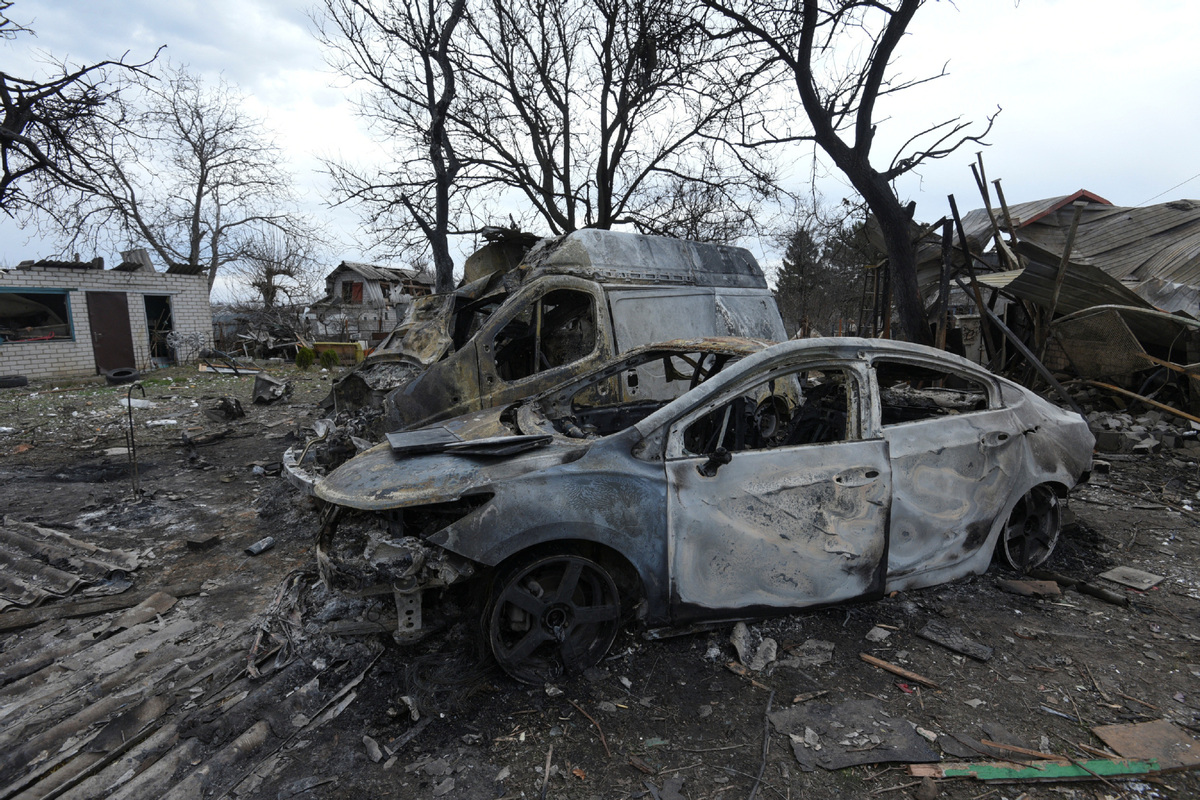
KYIV -- Energy infrastructure in six Ukrainian regions suffered damage from Russian missile and drone strikes on early Friday, said Ukrainian Prime Minister Denys Shmyhal.
Power facilities in central Dnipropetrovsk, Vinnytsia, Cherkasy, western Lviv, Ivano-Frankivsk and Chernivtsi regions have been harmed, Shmyhal wrote on social media Telegram.
The raids caused power outages in several regions, Shmyhal said, without giving more details.
The Ukrainian state-run energy company Ukrenergo said earlier that thermal and hydroelectric power plants were damaged in the attack.
Interior Minister Ihor Klymenko said the Russian forces attacked 10 Ukrainian regions, injuring at least six people.
More than 150 rescue workers and 35 units of equipment have been deployed across Ukraine to eliminate the consequences of the strikes, Klymenko said.
The Russian side has yet to respond to the claim.
According to the Ukrainian Air Force, Russia used 39 missiles and 60 Shahed combat drones against Ukraine in the latest attack, with the Ukrainian air defense intercepting 26 missiles and 58 drones.
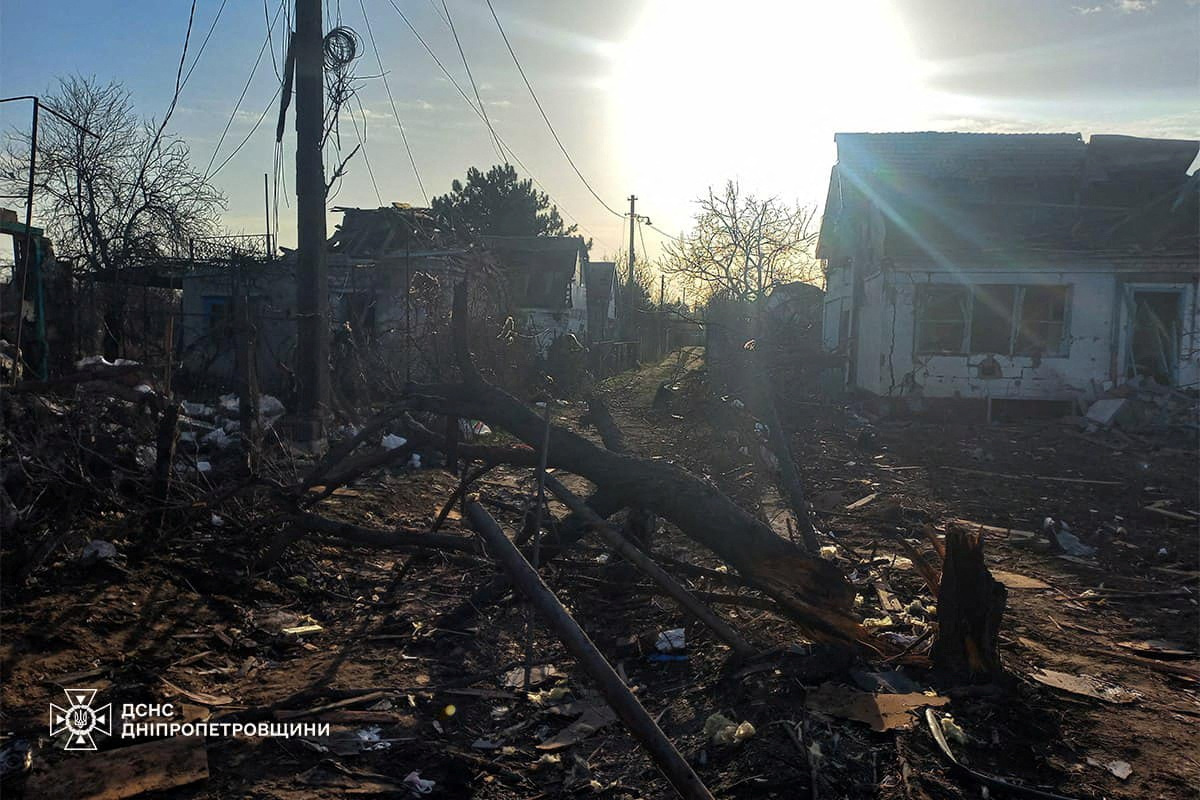
KYIV -- Thermal and hydroelectric power plants in central and western Ukraine were damaged in a massive Russian attack on Friday, said the Ukrainian state-run energy company Ukrenergo.
The air strike caused power outages in the central Dnipropetrovsk region and the eastern Kharkiv region, Ukrenergo said in a statement.
Sergii Lysak, the Dnipropetrovsk regional governor, said on social media Telegram that 12 missiles and 12 drones were shot down over the region overnight.
The Russian side has yet to respond to the claim.
Last week, Russia carried out the biggest attack on the Ukrainian energy sector, hitting the largest hydroelectric plant, the DniproHes, and damaging power facilities across the country.
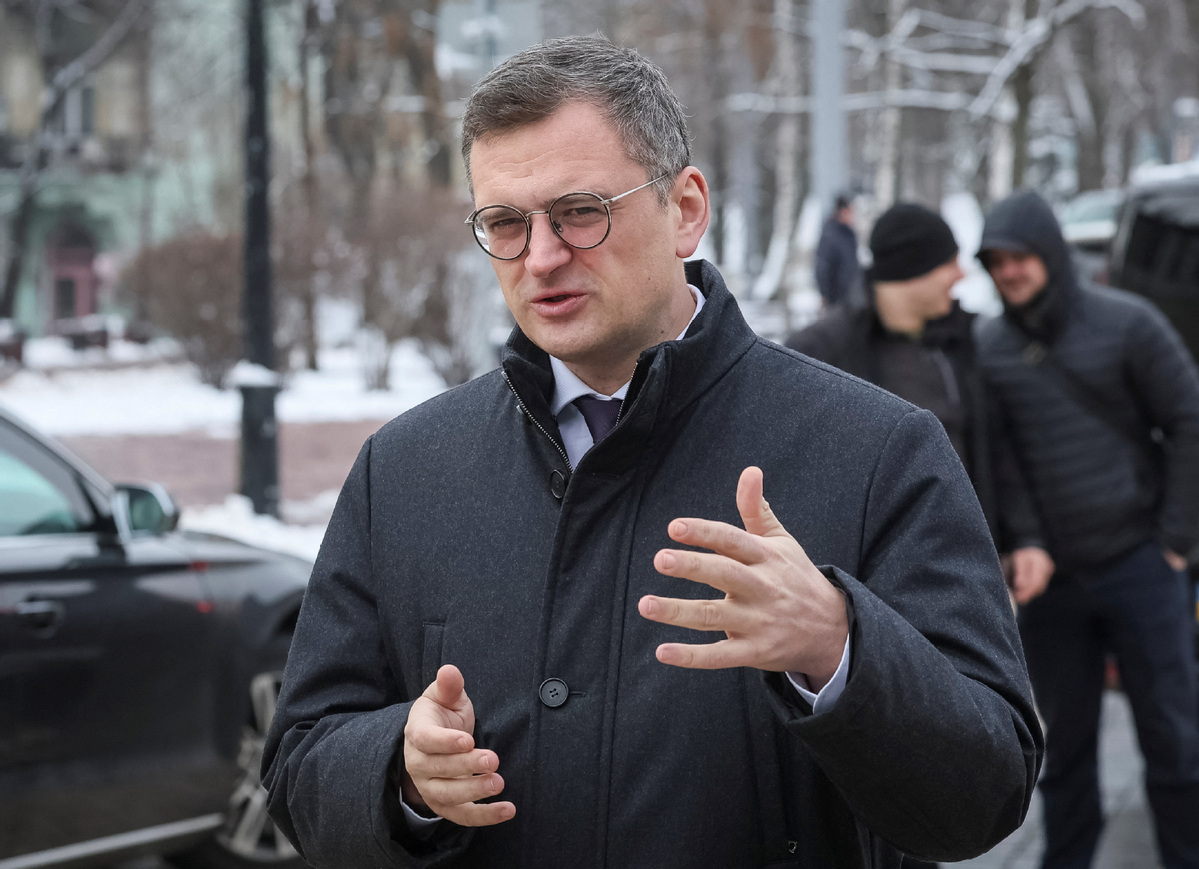
KYIV -- Ukrainian Foreign Minister Dmytro Kuleba welcomed the decision of the European Union (EU) to allocate an additional 5 billion euros (about $5.44 billion) for military support to Ukraine, the Ukrainian Foreign Ministry said Monday.
Speaking at the meeting of the EU Foreign Affairs Council, Kuleba said that the move to unlock the aid was an important step for Ukraine.
Kuleba also thanked the Czech Republic for its initiative to purchase artillery ammunition for Ukraine and appreciated the countries that have joined the initiative.
Earlier in the day, the Council of the EU allocated 5 billion euros (about $5.44 billion) for Ukraine under the European Peace Facility (EPF). The funds are due to be used for providing Ukraine with lethal and non-lethal military equipment and training.
Between 2022 and 2024, the European Union mobilized 6.1 billion euros (about $6.64 billion) for Ukraine under the EPF.
Last month, the Czech Republic proposed to EU countries to jointly purchase 800,000 artillery shells and send them to Ukraine.
BRUSSELS -- The Council of the European Union (EU) approved the creation of the Ukraine Assistance Fund (UAF) here on Monday and earmarked 5 billion euros ($5.4 billion) for it.
The decision was reached at EU's Foreign Affairs Council in Brussels, where ministers discussed EU support for Ukraine and the situation in the Middle East.
UAF will allow the EU to further support the evolving needs of the Ukrainian Armed Forces "through the provision of both lethal and non-lethal military equipment and training," the Council said.
Since the start of the Russia-Ukraine conflict in February 2022, the EU has given or committed over 138 billion euros in aid to Ukraine, of which 28 billion euros was military support. (1 euro = 1.09 US dollar)
KYIV -- The Ukrainian government approved the Plan for the Ukraine Facility, which was required by the European Union (EU) to allocate 50 billion euros ($ 54.5 billion) in financing for Kiev in 2024-2027, the cabinet's press service reported Monday.
"The Plan for the Ukraine Facility provides for the implementation of structural reforms in the public sector, and the implementation of many economic reforms aimed at the development of the business climate and entrepreneurship," said a statement on the government's website.
Under the plan, Ukraine is to implement more than 150 indicators in 69 reform directions by 2027, it said.
According to the statement, Kiev is counting on receiving 4.5 billion euros ($4.9 billion) under the Ukraine Facility program this month and another 1.5 billion euros ($1.6 billion) in April.
Ukrainian Prime Minister Denys Shmyhal said on Telegram that his country will get 16 billion euros ($17.4 billion) from the EU this year if it implements the reforms under the approved plan.
MOSCOW -- Russia has neutralized three US Patriot air defense complexes in Ukraine in the past week, local media quoted the Russian Ministry of Defense as saying on Saturday.
According to Russia's RIA Novosti news agency, Ukraine's forces have sustained significant losses in equipment and personnel, said Alexey Kim, chief of staff of Russia's joint group of forces, reporting to Russian Defense Minister Sergei Shoigu in a meeting.
Over the last week, three American Patriot complexes, a Vampire multiple launch rocket system combat vehicle, more than 10 foreign-made artillery systems, and warehouses of fuel, lubricants and ammunition were destroyed, the ministry said in the report.
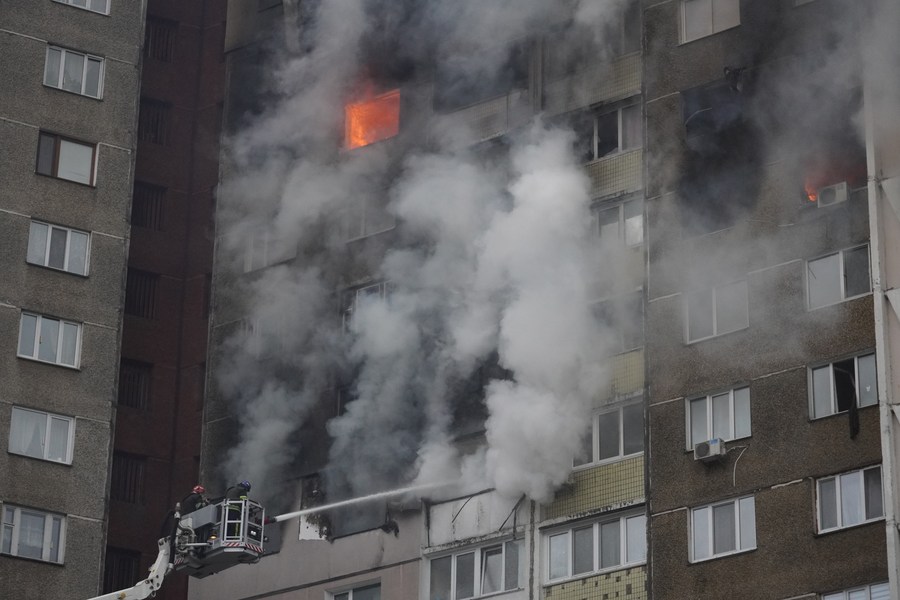
UNITED NATIONS -- A Chinese envoy on Friday called on the parties to the Ukraine crisis to start peace talks at an early date.
With the fighting still ongoing, the risk of spillover continues to emerge. One more day of conflict brings one more element of risk to the world. One day earlier for peace talks means one day sooner for peace. Peace is a matter of utmost urgency as well as a matter of public expectation, said Geng Shuang, China's deputy permanent representative to the United Nations.
On the Ukraine issue, China has always maintained that the sovereignty and territorial integrity of all countries should be respected, the purposes and principles of the UN Charter be upheld, the legitimate security concerns of all countries be taken seriously, and all efforts conducive to the political settlement of the crisis be supported, he told the Security Council.
"We reiterate our call on the parties to the conflict to demonstrate political will, meet each other halfway, build consensus, cease fighting, and start peace talks at an early date," said Geng. "We call on the international community to step up diplomatic efforts to create conditions for de-escalating the situation and achieving a political settlement."
China has always maintained an objective and impartial position and has participated in promoting peace talks. China supports the holding in due course of an international peace conference that is recognized by both Russia and Ukraine and one that ensures the equal participation of all parties in full discussion of all peace plans, he said.
"China is ready to provide the necessary conditions for Russia and Ukraine to engage in negotiations, and will continue to play a constructive role in promoting a political solution to the crisis," Geng said.
